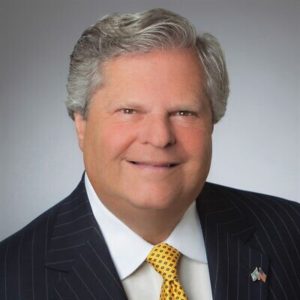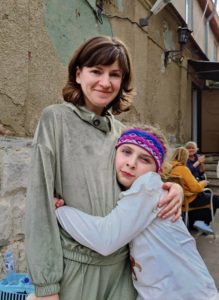By Dr. Sol Lizerbram

SAN DIEGO — The Seder table is set. The brisket is in the oven and the guests are about to arrive. The anticipation of another Passover brings with it a welcomed sense of familiarity. However, for the residents of Israel’s Negev and Galilee regions, this year they will ask, “Why is this Passover different from all other Passovers?” Yet, the question is rhetorical as many of these pioneering families living on Israel’s frontier will have new faces at their seder tables — those of Ukrainian refugees who like their hosts, will experiencing a Passover like never before. In broken Hebrew, English, and Ukrainian, they will come together and unite as one doing what Jews have done for thousands of years — retell the miraculous story of our exodus from Egypt and the journey to the Promised Land.
Today, most olim (new immigrants) who arrive in Israel have come by choice rather than necessity. Some have made aliyah to pursue their start-up dream. Others want their children to grow up in the tranquility of Israel’s Arava Valley or rolling green hills of the Western Galilee. And of course, there are still those who have fled conflict or persecution and have found peace and a new life in Israel. Whatever the reason, Jewish National Fund-USA is there for them, just like we always have been for over 120 years.

It’s hard to imagine what it must be like for Ukrainians arriving in Israel. Like those who came before them in previous decades from places like Europe, the Former Soviet Union, Ethiopia, and countless Arab countries, the prospect of beginning a new life with few possessions, no income, and not understanding the local language is hard to fathom. However, just like we were there for our Jewish brothers and sisters in previous waves of immigration, we remain there for them now.
Through Jewish National Fund-USA’s affiliates, we have Russian and Ukrainian-speaking volunteers on the border with Ukraine supporting Jewish refugees. And once in Israel, we ensure their most basic needs, such as food and shelter, are met; that their babies have formula, and their children have toys to play with. We also have Russian-speaking psychologists for those who need mental health assistance, especially children.
Yet we are also planning for their long-term success in Israel. That’s why our Lauder Employment Center is creating a special employment program to empower Ukrainian refugees to find gainful employment in the Negev and Galilee.
However, none of this happened overnight. Because of our decades of philanthropic investments in Israel’s north and south, we already had the infrastructure in place to support those fleeing from Ukraine – as well as for Israelis who have decided to relocate from the crowded center of the country to the Negev and Galilee. We have built incredible schools, parks, and playgrounds for their children to learn in and enjoy; medical centers to ensure healthcare is always readily accessible; and housing development sites to facilitate the future construction of affordably priced homes.
As we gather around our Seder tables to recite the Ma Nishtanah, we will ask, “Why is this night different from all other nights.” While this Passover will be a totally new experience for Israel’s recently arrived olim, the truth is that in many ways, tonight is no different. Like countless nights before, we, the Jewish people have come together to support each other during a time of great adversity. As our brethren from Ukraine begin new lives in Israel, they know that Jewish National Fund-USA is there for them tonight, tomorrow, and in the following days, weeks, and years ahead, just as we continue to be for the land and people of Israel and Jewish people everywhere.
*
Dr. Sol Lizerbram is National President of Jewish National Fund-USA. He is based in San Diego. To support the land and people of Israel, visit jnf.org/donate. For more information on Ukraine relief efforts, visit jnf.org/Ukraine.